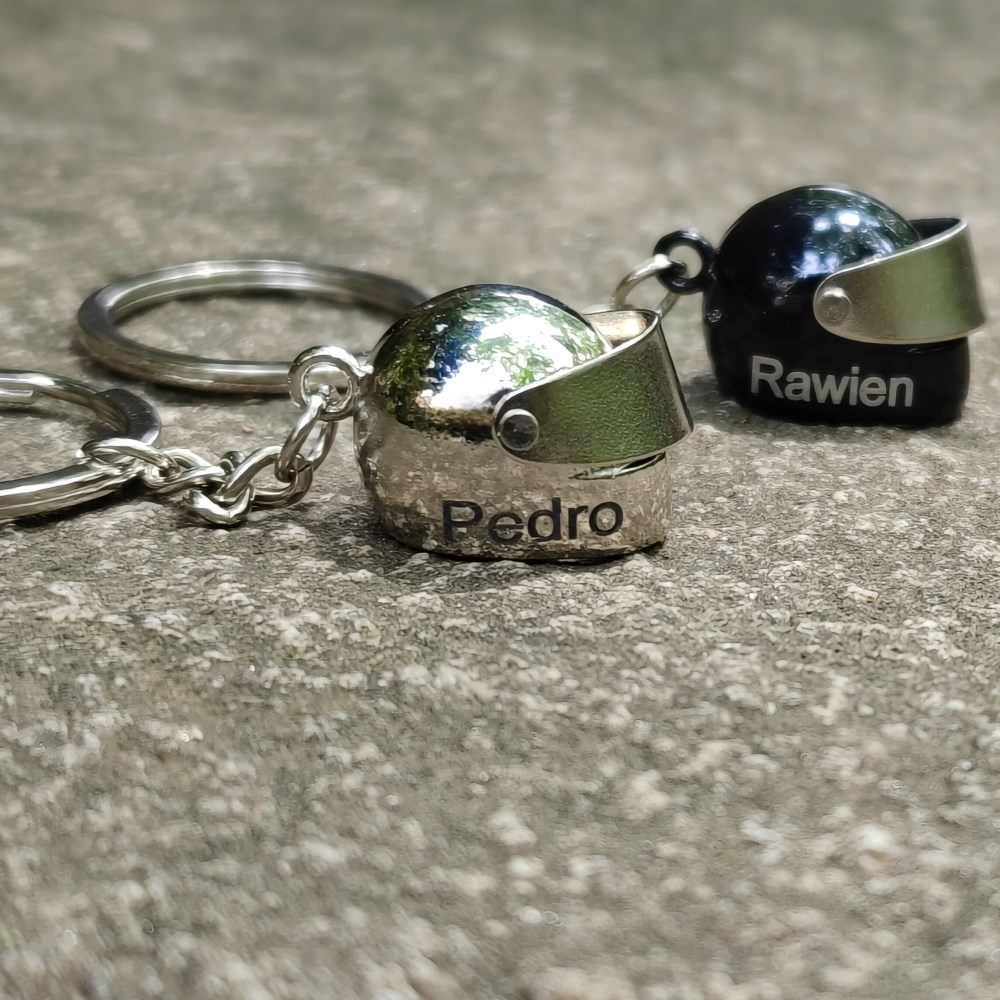Gifts Idea, Tips
Bad Luck Gifts for Relationships: What NOT to Give Your Partner!
Bad luck gifts for relationships. The phrase itself might sound like superstitious mumbo jumbo to some. However, across cultures and generations, certain gifts have earned a reputation for bringing misfortune, especially within romantic partnerships. Choosing the perfect gift for your loved one is often a delightful yet sometimes stressful task. We want our presents to express affection, strengthen bonds, and create lasting positive memories. But what if, unintentionally, your well-meaning gift could sow seeds of discord or, according to some beliefs, even spell doom for the relationship?
This article dives into the fascinating world of “bad luck gifts for relationships.” We will explore common items whispered to carry negative connotations in love, understand the cultural roots of these superstitions, and ultimately help you navigate the sometimes tricky terrain of romantic gift-giving. Whether you’re a firm believer in omens or simply curious about cultural traditions, understanding these gifting faux pas can only enhance your thoughtfulness and ensure your presents always convey the right message: love, care, and unwavering support.
Unpacking the Superstitions: Gifts That Raise Red Flags
For many, the idea that an inanimate object can influence the trajectory of a relationship seems absurd. Yet, superstitions surrounding gifts have persisted for centuries, woven into the fabric of various societies. These beliefs often stem from symbolic interpretations of the gifts themselves or historical contexts that have imbued certain items with negative associations. Let’s unwrap some of the most common “bad luck gifts for relationships” and understand the reasoning behind the warnings.
Sharp Objects: Cutting Ties?
One of the most widely recognized categories of “bad luck gifts for relationships” is sharp objects. This includes items like knives, scissors, and even letter openers. The symbolism here is quite direct and perhaps unsurprisingly negative. Sharp objects are associated with cutting, severing, and causing pain. Giving a knife set to your partner, according to superstition, can represent cutting ties within the relationship itself. It’s as if the gift subtly hints at a desire to separate or inflict emotional wounds.
This belief isn’t limited to romantic relationships either. Giving sharp objects as gifts can be considered impolite or even aggressive in some cultures, regardless of the relationship dynamic. The underlying message, whether intentional or not, can be misconstrued as hostile or signifying a desire to “cut someone out” of your life.
Handkerchiefs and Tissues: Tears and Sorrow
Handkerchiefs and tissues might seem like practical and even thoughtful gifts, especially for someone prone to colds or allergies. However, in the realm of gift-giving superstitions, these items are often flagged as harbingers of sadness and tears. The association is quite literal: handkerchiefs are primarily used to wipe away tears. Gifting them, therefore, is seen as symbolically inviting sorrow and hardship into the relationship.
While seemingly innocuous, presenting your partner with a beautifully embroidered handkerchief might be interpreted, through a superstitious lens, as anticipating or even wishing for tears in the future of your bond. This belief often extends to other items associated with illness or sadness, making practicality a secondary consideration when choosing gifts within certain cultural contexts.
Shoes: Walking Away and Parting Ways
Shoes, a necessity in most parts of the world, carry a rather peculiar and often negative symbolism in gift-giving folklore. Giving shoes as a gift to a romantic partner, particularly in some European and Asian cultures, is believed to signify that the recipient will “walk away” from the relationship. The imagery is potent: shoes are for walking, for journeys, and in this context, for walking out of your life.
This superstition is rooted in the idea of mobility and departure. Shoes facilitate movement, and gifting them can be interpreted as subtly encouraging or even predicting the end of the relationship’s journey. The message, albeit unintentionally, can be seen as preparing your partner to leave or hinting at your own desire for them to do so. Therefore, while a stylish pair of shoes might seem like a fashionable and appreciated gift, it could be laden with unwanted symbolic baggage.
Clocks and Watches: Time Running Out?
Timepieces, such as clocks and watches, are frequently given as gifts to mark milestones or express appreciation. However, within the landscape of “bad luck gifts for relationships,” they often fall under scrutiny. The negative connotation associated with clocks and watches in relationships stems from the concept of time itself – particularly, time running out.
Gifting a clock or watch can be interpreted as counting down the time remaining in the relationship. It subtly introduces the idea of an expiration date, suggesting that the bond is finite and destined to end. The ticking of a clock, normally a neutral sound, becomes symbolic of time slipping away, and potentially, love fading with it. While a luxurious watch might seem like a grand gesture, the underlying message, viewed through a superstitious lens, can be surprisingly unsettling.

Umbrellas: Sheltering from Storms, or Inviting Them?
Umbrellas, designed to provide shelter from rain and storms, surprisingly appear on the list of “bad luck gifts for relationships.” The superstition surrounding umbrellas as gifts is a bit more nuanced and less universally recognized than some of the others. However, in some interpretations, gifting an umbrella can be seen as symbolically creating distance or anticipating rainy days in the relationship.
The act of opening an umbrella indoors is already considered unlucky in many cultures, seen as inviting misfortune into the home. Extending this belief to gift-giving, an umbrella might be interpreted as creating a barrier or suggesting that the relationship is destined to face stormy weather. It can be perceived as less about protection and more about acknowledging or even inviting negativity.
Plants with Thorns: Prickly Relationships
While flowers are generally considered romantic and appreciated gifts, certain types of plants, particularly those with thorns like roses (despite their romantic associations!) or cacti, can be viewed as “bad luck gifts for relationships.” The symbolism here is quite straightforward: thorns represent pain, obstacles, and potential injury.
Gifting a thorny plant can be interpreted as foreshadowing a prickly or difficult relationship, one filled with challenges and potential hurt. The thorns symbolize the sharp edges and potential for pain within the bond. While roses, with their beautiful blooms, often defy this superstition due to their strong romantic connotations, other thorny plants are best avoided as gifts for your beloved, especially if either of you are even mildly superstitious.
Cultural Nuances and Variations in Gift-Giving Superstitions
It is crucial to emphasize that gift-giving superstitions are deeply rooted in culture and tradition. What is considered a “bad luck gift” in one culture might be perfectly acceptable, or even considered auspicious, in another. The superstitions we’ve discussed are not universally held beliefs and their prevalence varies significantly across different regions and communities.
For instance, while shoes might be considered unlucky gifts in some European and Asian cultures, they hold no such negative connotation in many Western societies. Similarly, the superstition surrounding clocks and watches might be more pronounced in cultures with a strong emphasis on time and its symbolic passage.
Understanding these cultural nuances is paramount, especially in increasingly globalized relationships. If you or your partner come from different cultural backgrounds, open and honest communication about gift-giving expectations and potential superstitions is essential. What you intend as a thoughtful gesture might be misconstrued or even cause offense if cultural sensitivities are not taken into account.
The Psychology Behind Gift Superstitions: Why Do We Believe?
Why do these gift superstitions persist? In a rational world, it might seem illogical to attribute misfortune to inanimate objects. However, the power of belief and symbolism is deeply ingrained in human psychology. Several factors contribute to the enduring nature of these superstitions:
- Cultural Transmission: Gift superstitions are passed down through generations, becoming part of cultural folklore and tradition. From childhood, we often hear warnings and stories associated with certain gifts, embedding these beliefs in our subconscious.
- Symbolic Interpretation: Humans are inherently symbolic creatures. We find meaning in objects and actions, often beyond their literal function. Gifts, by their very nature, are symbolic gestures. It’s natural to interpret the symbolism of a gift in the context of the relationship. Sharp objects symbolize cutting, tears symbolize sorrow, and so on.
- Control and Uncertainty: Relationships are inherently unpredictable and often involve a degree of uncertainty. Superstitions can provide a sense of control in the face of this uncertainty. By avoiding “bad luck gifts,” individuals might feel they are taking proactive steps to safeguard their relationship, even if logically, the connection is tenuous.
- Confirmation Bias: Once a belief is established, confirmation bias can reinforce it. If someone gives a “bad luck gift” and the relationship subsequently faces challenges, the superstition might be seen as validated, even if the issues were unrelated to the gift itself.
Beyond Superstition: Thoughtfulness and Intent
While understanding gift superstitions can be insightful and culturally sensitive, it’s crucial to remember that the most important aspect of gift-giving in any relationship is thoughtfulness and intent. A gift, regardless of whether it falls into a “bad luck” category, is ultimately a gesture of care and affection. If your gift is chosen with genuine love and consideration, its symbolic interpretation becomes secondary.
Focus on your partner’s preferences, needs, and personality. A truly thoughtful gift reflects an understanding of who they are as an individual and what brings them joy. It demonstrates that you pay attention, you care, and you want to make them happy.
Here are some tips for thoughtful and “good luck” gift-giving in relationships:
- Personalized Gifts: Gifts that are tailored to your partner’s specific interests and hobbies always resonate. A book by their favorite author, a tool for their любимое хобби (favorite hobby), or a piece of art that reflects their taste shows genuine care.
- Experiences Over Material Goods: Creating memories together often trumps material possessions. Consider gifting experiences like concert tickets, a weekend getaway, a cooking class, or a hot air balloon ride. These gifts foster connection and shared joy.
- Gifts of Support and Encouragement: Gifts that support your partner’s goals and dreams are incredibly meaningful. This could be a subscription to a learning platform, equipment for their entrepreneurial venture, or simply a heartfelt letter expressing your belief in them.
- Gifts of Comfort and Relaxation: In our fast-paced world, gifts that promote relaxation and self-care are always appreciated. Think about a spa day, a cozy blanket, aromatherapy oils, or anything that encourages them to unwind and de-stress.
- Open Communication: When in doubt, communicate! If you’re unsure about a particular gift or concerned about cultural sensitivities, have an open conversation with your partner. Directly asking “Is there anything you’d rather I didn’t get you as a gift?” can be surprisingly helpful and shows consideration for their beliefs.

The Modern Take: Love and Laughter Trump Superstition
In the 21st century, while some individuals still adhere to gift-giving superstitions, many others view them with a grain of salt, or even amusement. In modern relationships, love, communication, and mutual respect are far more potent predictors of success than avoiding certain types of presents.
Ultimately, the intention behind the gift and the strength of the relationship are what truly matter. A loving partnership built on trust and open communication can withstand far more than the supposed “bad luck” of a mistakenly given clock or a pair of shoes. So, while it’s interesting and informative to be aware of gift superstitions, don’t let them dictate your gift-giving choices entirely.
Choose gifts from the heart, be mindful of cultural sensitivities, and prioritize thoughtfulness above all else. In the grand scheme of relationships, a little bit of love and laughter will always outweigh any perceived “bad luck” from a well-intentioned, if slightly superstitious, gift.






